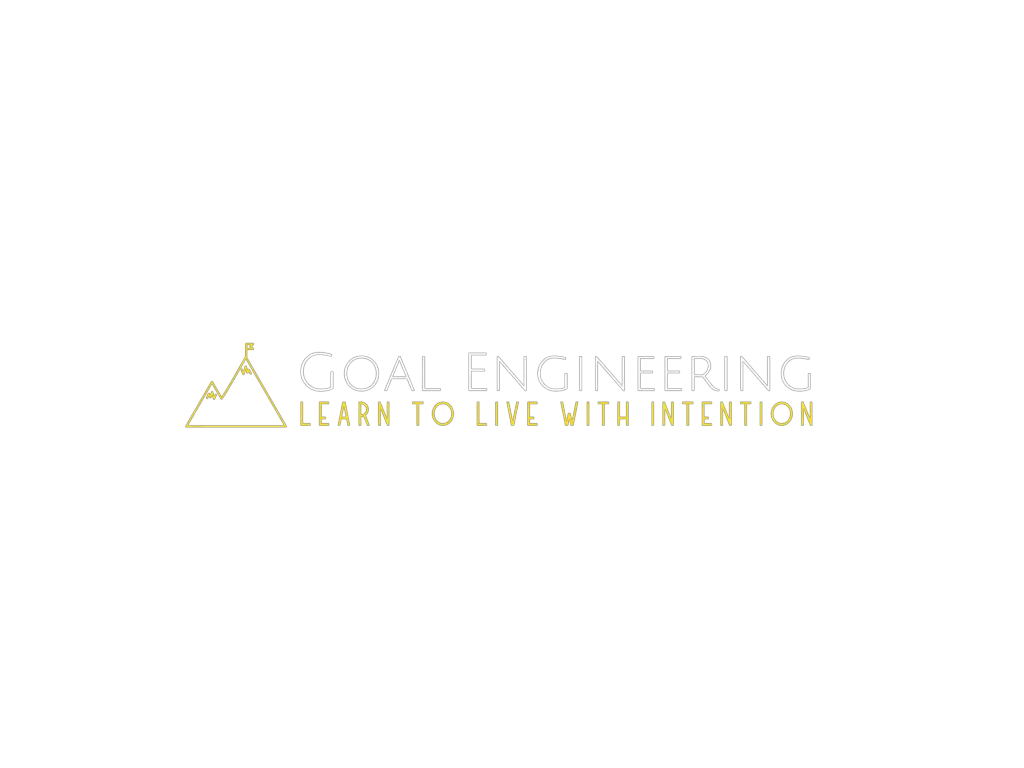A couple of weeks ago my therapist taught me a life-changing lesson. I was having a hard time not stressing out about something in my life and we’d talked in great detail about ways to cope. Then he told me that the truth is, coping mechanisms are important, but they only work temporarily. He taught me that until you improve your mindset about something, things will always keep going back to being difficult again.
It hit me so hard that since then, I’ve spent almost all my spare time thinking about how to implement this idea. I’ve realized that I already know some of the best ways to change my thinking. And I’ve used them to make major improvements to my life.
If you want to improve your mindset about anything in life, try these four tactics:
- Just act knowing that the change will come.
- Set aside time to practice healthy thinking habits, including meditation, mantras, affirmations, and visualization.
- Read non-fiction books.
- Get a coach or therapist. Or both!
Let’s take a deeper look into each of these and learn how you can use them—even today—to make your outlook on life get better.
1. Act
“It is easier to act yourself into a new way of thinking, than it is to think yourself into a new way of acting.” — Millard Fuller
A couple of months ago I decided to commit to a 12-week personal growth challenge. As part of that, I promised myself that I would write a blog post every day for 84 days in a row.
Today is day 72 of that challenge and I’ve stuck to my commitment every day so far. I’m excited about what I’ve accomplished but I’m even happier thinking about the mindset shift that this has given me.
A lot of the reason that I decided to focus on writing a blog post a day is explained by this quote from Jon Acuff:
“The goal of writing that wasn’t to release a book. It was to release me.”
When he says “that” he’s referring to a similar daily writing commitment. It went so well that afterward the habit helped him write a book. In that book, he explains how doing this shifted his mindset. Only by putting in the effort did he really start to believe the truth that “done is better than perfect” and that he’d do better if he just wrote instead of overthinking.
I’ve found the same to be true of my writing journey. Prior to this challenge, I would get stuck in overthinking a lot. I’d second guess myself and could only keep a writing streak for maybe two weeks at most.
But by doing the work, I’ve learned to be okay with imperfection. My mindset improved only after I acted. And the same will be true for you too, in whatever you’re doing.
You might start running and start to realize that it’s not so bad. Or you begin dating someone and you see that not all relationships are doomed.
Whatever it is you’re wanting to change your mind about, try action first.
2. Thinking Practice
“As a single footstep will not make a path on the earth, so a single thought will not make a pathway in the mind. To make a deep physical path, we walk again and again. To make a deep mental path, we must think over and over the kind of thoughts we wish to dominate our lives.” ― Wilfred Arlan Peterson
How many times in your life have you said the phrase “I’ve got to go to practice?” We say this all the time when referring to sports or musical instruments.
We know that to become good at anything we have to learn the right way to do it and repeat that to make it stick. So we set aside time to do that learning and repetition.
So why don’t we do the same with the most important thing of all—our thoughts?
What if, instead of saying you had to go to harp practice or football practice, you were going to “thinking practice?”
If you’re like me when I first discovered this idea you might be wondering “that’s great, maybe it can improve my mindset. But what would you even do during thinking practice?”
Well, I’ve discovered at least four components to give us a start:
- Meditation. There is so much science behind how meditation makes you happier, healthier, and more successful that I couldn’t even begin to scratch the surface of it all. The reason that meditation is proven to help you, though, is because it improves your mindset. As you close your eyes, focus on your breathing, and let thoughts come and go or take your thoughts through a pre-planned exercise, your mentality on whatever’s going on in your life shifts dramatically.
- Mantras. This is when you come up with a phrase that summarizes a belief that you want to have and you repeat it to yourself, out loud, over and over, until it sticks. It might sound strange, but it works if you really lean into it. If you want some help finding good mantras, read Soundtracks by Jon Acuff.
- Affirmations. These are similar to mantras. But I’m talking about the very specific type of affirmations in which you stand in front of a mirror and say a bunch of them out loud once every day. Acuff has an example of one in Soundtracks that I highly recommend. Another of my favorites is this one by Zig Ziglar.
- Visualization. Research has shown that you can actually make your muscles stronger by imagining yourself going through the motions of exercise. So why not do the same with all of your goals to help make them a reality? Go through each area of your life, including spirituality, relationships, finances, and health, and write out how you want your life to be in that area. Then, when it’s time for your thinking practice, make a vivid image of that life. Think specifically about how it feels.
The key to making this work, just like with your sports or musical instrument practices, is repetition.
If you want to permanently change anything you have to stay consistent over a long period of time. To do that, you must find ways to make it simple enough that you can repeat your thinking practice every day.
For my thinking practice, I spend moments throughout each day doing each of these exercises. But at least once per day, I set aside about half an hour to go through each of them for maybe 8 minutes or so. I may choose one area of life or one goal that I want to meditate on, repeat mantras and affirmations for, and visualize.
It’s enjoyable, relaxing, and best of all, will improve your mindset.
3. Reading Books
“The reading of all good books is like a conversation with the finest minds of past centuries.” — Rene Descartes
As a popular quote teaches, you’re the average of the people that you are around the most. That might make you flinch knowing some of the bad influences in your life. And how hard it may be to change those.
But what if there was a way that you could choose anyone to mentor you? What if you could choose any person, living or dead, famous or not, to influence you for the better?
It may seem crazy, but this is actually possible. Think about how books are like hanging out with the people who wrote them. It’s like getting into their heads and learning from them. So, in other words, as I like to say:
“You are the average of the 5 authors you read the most.”
So, you can change your mindset by reading and rereading non-fiction books from the people who you want to become like.
For instance, this book by Jen Sincero had such a powerful impact on me when I first started it that I listened to the entire audio version in a single day. I still remember how there were dozens of moments that day in which I was just dumbstruck at how wrong I had been about money my whole life. But also excited at all the new ideas and principles I was learning.
Since then, I’ve listened to it over 15 times. I can’t get enough of it because each time I hear it I realize and adopt a new and better mindset about money.
Because of this mindset shift I’ve boosted my income, started two businesses, built a writing career with no degree in writing, became a licensed Professional Engineer, paid for a car in cash for the first time, bought a house, and enjoyed so many more of the wonderful things that money can buy. And it all came from just one book.
Find good books to read and your mindset will improve faster and better than you ever thought possible.
4. Therapy and Coaching
“I absolutely believe that people, unless coached, never reach their maximum capabilities.” — Bob Nardelli
After my first few therapy sessions, I started to realize that therapy is just like coaching for your mental health. Within just a few weeks of starting, I saw a dramatic improvement in my happiness.
But the reason for that was because of how my therapist helped me change my way of thinking about so many things in my life.
I’ve also had a lot of coaching over the last few years. It works just as well to improve your mindset about anything.
The benefit of a coach or a therapist is that it takes them just 5 minutes to see something you need to change that might take you 5 months to discover. In other words, improving your life is a lot faster and easier when you have a coach or therapist. Or both!
The other thing that makes coaching so powerful is that you can get a coach for just about anything you want to do. From fitness to writing and even productivity, starting a business, or improving your finances, there’s a coach for it all.
With their outside perspective, coaches and therapists act as both a sounding board and a way to pinpoint the biggest flaws in your thinking and how to break through those. This makes them one of the best ways to improve your mindset.
Wrapping Up
I want to reiterate the truth I shared in the beginning that my therapist taught me. It’s that you can make surface-level changes or set up coping mechanisms all you want, but ultimately, until you improve your mindset, things will never permanently get better.
Here are those four steps you can use to make that change in your thinking happen one more time:
- Act.
- Set aside time for a thinking practice every day.
- Read non-fiction books.
- Get a therapist or a coach or both.
I know these work because I use them every day and every week. They’re improving my mindset and my life one belief at a time. And I’m certain they will do the same for yours.





